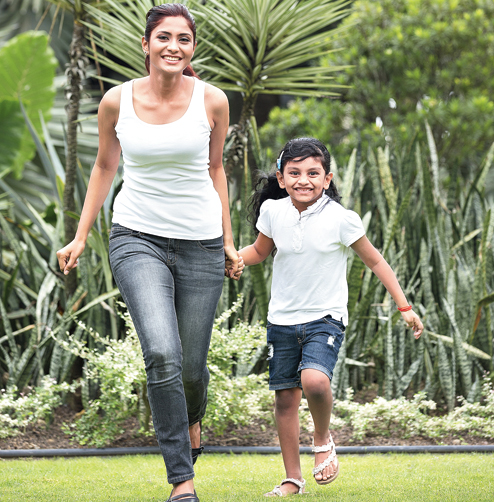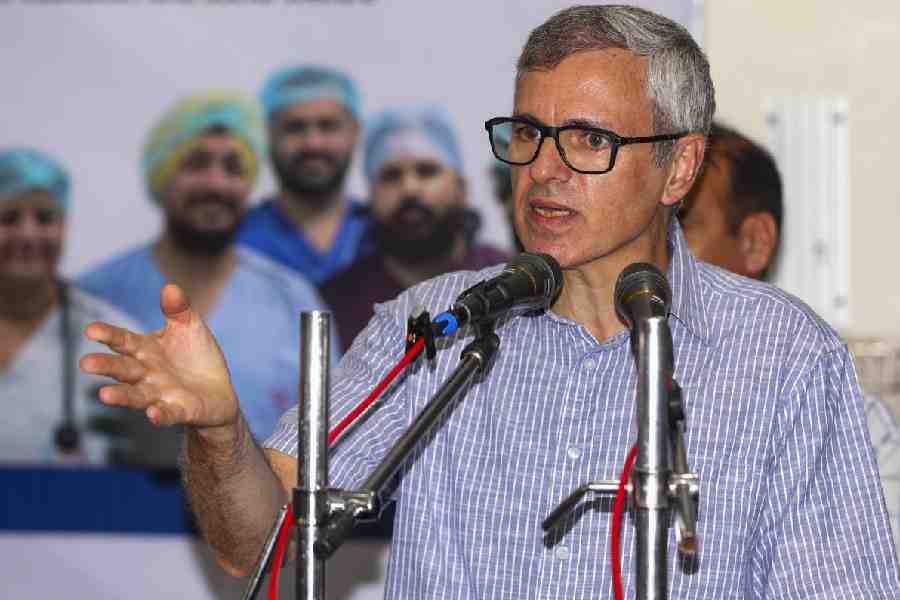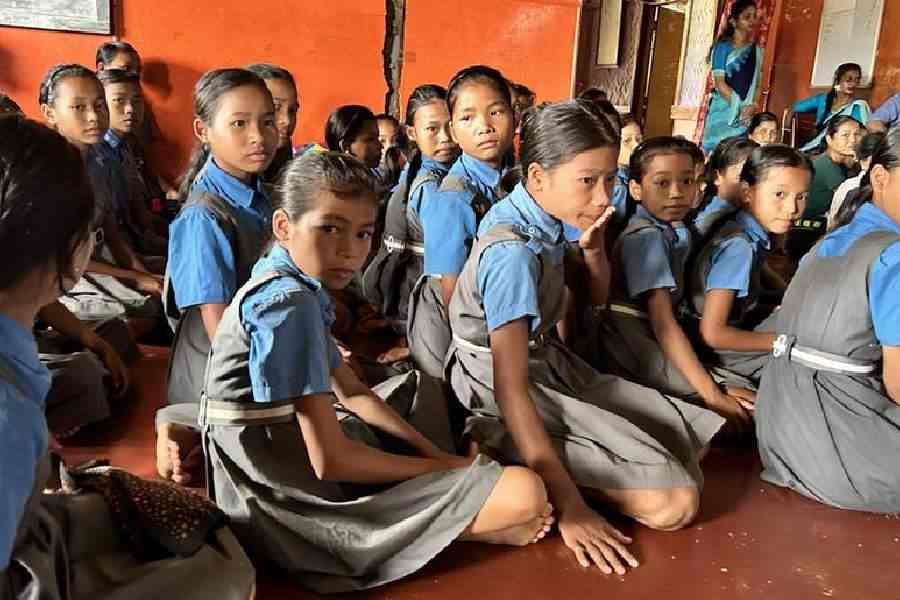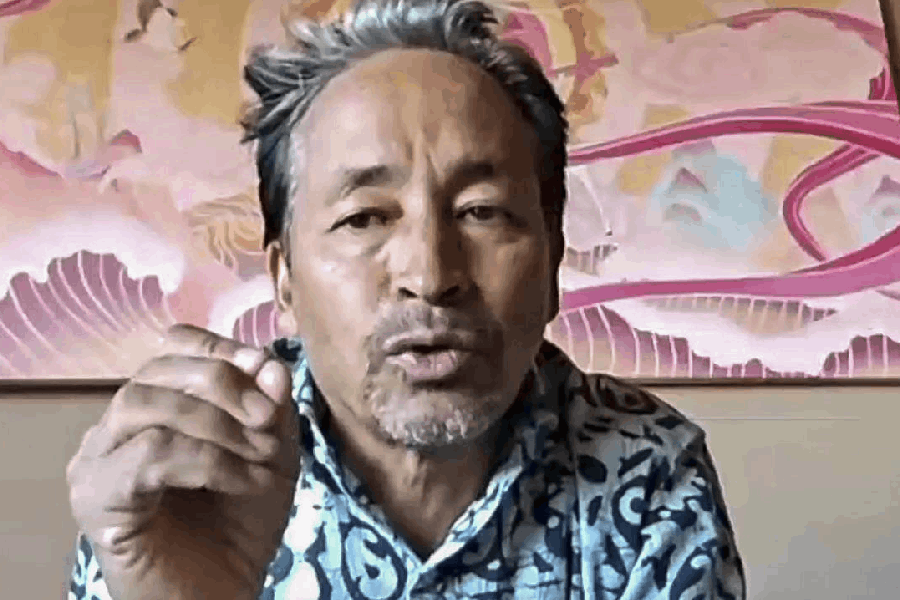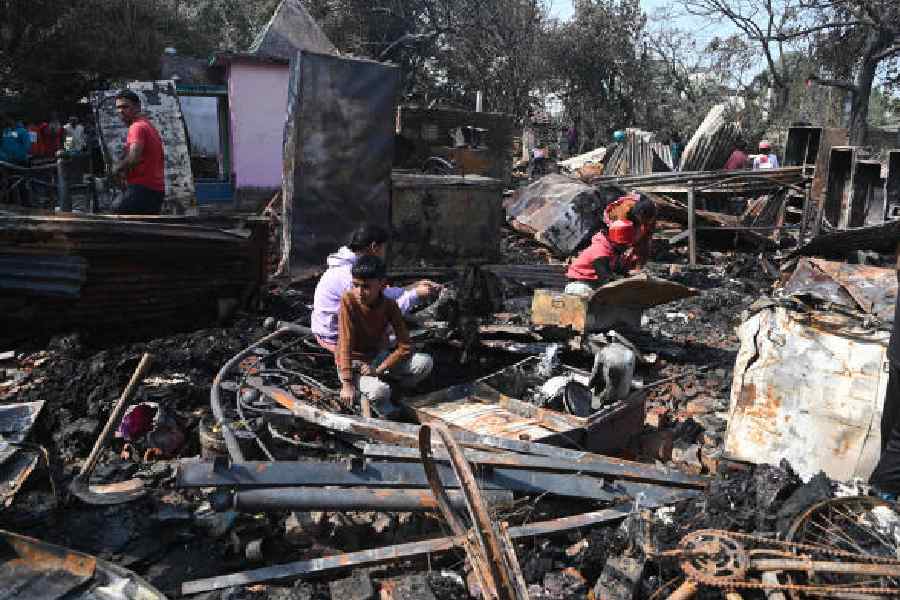
Andrew, 15, stayed out late with his friends, smoked marijuana and failed in school. One day, his father, Peter, lost his cool. He broke his son's computer, slapped him across his face and told him he regretted Andrew had ever been born.
Many parents would say Peter needed to take stern measures to rein in his difficult son. But not Shefali Tsabary.
"Peter was going through what countless parents of teenagers endure," writes Tsabary in her book The Conscious Parent. "Peter's anxiety caused him to engage in daily confrontation with his son... Had Peter engaged Andrew in a neutral state of mind... seeking an authentic connection with his son, Andrew would have responded differently."
Roll over Amy "Tiger Mom" Chua; India-born Tsabary is here. The latest in parenting is not the stern approach that Chua suggested in her 2011 book, Battle Hymn of the Tiger Mother, which became a huge bestseller. The focus now is on Tsabary's book which urges parents to avoid "confrontation" and to "let the child be". Her parenting manual has already sold over one lakh copies in the US.
"This approach will blow all the traditional ideas you have about parenting and challenge you to face some truths about your own development," Tsabary, who grew up in Mumbai and Bangalore, tells The Telegraph in an email interview.
The book is a New York Times bestseller and on top of online retailer Amazon's book list. Tsabary has appeared on chat show host Oprah Winfrey's programmes multiple times, with Winfrey describing her work as "one of the most profound books on parenting" and her approach as "revolutionary". First published in the US by Namaste Publishing in 2010, her book has gone into a fourth reprint. The British rights of the book were bought by the publisher Hodder & Stoughton in January this year. Hachette India will be out with the Indian edition later this month.
If Chua wrote about pushing her kids to excellence, the New York-based clinical psychologist with a 12-year-old daughter advises parents against trying to replicate their own childhood while raising their kids.
She cites the case of Jessica, who was an "ideal" daughter till she was 14. But in two years, she'd turned into her mother Anya's worst nightmare. She smoked, bunked classes and was rude. Mother and daughter yelled at each other and there was constant strife. The more Jessica rebelled, the more controlling and dominant Anya became. Finally, the mother sought professional help.
"Anya was able to revisit her childhood and uncover her anger toward her parents. She could release her daughter from the trap of 'perfection' she herself had lived in all her life," writes Tsabary in her book.
This is not every mother's concept of bringing up children. It's certainly not Chua's, who wrote about how she forced her seven-year-old daughter to practise a piano piece for hours on end with no water or loo breaks. Another time, she threw away a handmade card made by her daughter because she felt it wasn't "perfect".
The uproar caused by Chua's book seems to have sparked a rethink on parenting. A new book ( Beyond Happiness) by Anthony Seldon, master of Wellington College, Berkshire, UK, holds that a pushy parent is guilty of a form of child abuse. "The wisdom in parenting is to recognise that your child isn't you. A parent's job is to help their children be who they want to be," the British historian said in a newspaper interview earlier this month.
But Amy Chua called her book a "complex memoir" and not a parenting book. She told this correspondent in a 2012 interview that the book was not a "one-size-fits-all" parenting manual. "In China, the entire education system is too authoritarian; there is too much memorising and little creativity. There you shouldn't put more tiger parenting - kids there need more freedom to make choices. But in the West, you need to create pressure for the right balance."
Indian parenting, she added, was similar to the Chinese model. "In the US, Indian children are the top children, better than the Chinese children. I know there must be a lot of similarities between our parenting because I know what it takes to get to the top."
Clearly, across the world, and in India, parenting is the new mantra. If Dr Benjamin Spock's books were once the bible for parents, there are now parenting workshops, parenting schools, a plethora of books and journals, online courses and websites that cater to everything from conceiving a child to raising a perfect one.
Not surprisingly, not everybody in India is sure if the Tsabary or the Seldon method works. Some parents point out that examination and employment pressures force them to exert pressure on their children to excel.
"Traditionally, Indian moms are tiger moms. Peer pressure drives us further to push our kids towards achieving greater highs - be it in academics or sports," says author Kiran Manral, who also writes an online parenting column. "I allowed my son to grow up like a weed till he was in the primary school but I realised that wasn't the right way."
Her 12-year-old son is a budding swimmer and so the mother follows a strict swimming practice routine starting at 4.30am. "He is the kind of child who needs to be pushed for excellence and so I do that," Manral explains.
But questions are also being raised in some quarters about the way Indian children are being raised. "Parents are micro-managing their children's lives," says Sonali Gupta, a Mumbai-based clinical psychologist. "We still seek validation from our child's success," Gupta adds.
Like Tsabary, child development experts in India, too, believe that parents have to learn to let go.
"In my training programmes, I specifically ask parents to allow their child to make mistakes. They should stop expecting their kids to be perfect," says N. Janardhana of the Child & Adolescent Psychiatric Department at the National Institute of Mental Health and Neurosciences (Nimhans), Bangalore. "In the last decade, parents have developed a keen desire to be the perfect parents and to raise perfect kids. But they forget that remote-controlling your child is not the way to do so," he adds.
Trust your child and everything else will fall in place, advises Tsabary. "The child doesn't need to grow up but it is you, the parent, who needs to grow up," she said in one of the episodes of the Emmy award-winning series Oprah's Lifeclass in September. "In our desire to raise 'mini-me's' we will fail to help them find their path," the 42-year-old author says.
Global studies support Tsabary's views on over-parenting. In 2013, researchers from the University of Mary Washington in Virginia found that helicopter-parenting - a term used for parents who hover over their children anxiously - negatively affected college students. The offspring of over-controlling parents were more likely to be depressed and less satisfied with their lives.
At the same time, a research paper from Ohio University criticised parents' tendency to "overvalue" their children. Constant and undue praise may have the unintended side-effect of turning them into "narcissists", it said.
Tsabary maintains that parents "helicopter" their children only because they want to exercise total control over them. "It is because we were robbed of our own right to full expression when we were children that we now seek it through our relationship with our children," she says. "We project onto them all our unfulfilled expectations. In doing so, we fail to raise a generation of daring thinkers."
Some parenting counsellors believe that Tsabary is on the right track. Shilpa Gupta, who conducts a course called Responsible Child Care at the Centre for Child and Adolescent Wellbeing, Delhi, describes the book - Tsabary's second - as "food for brain". Her first book, called It's a Mom, was out in 2006, and her third book on disciplining children, Out of Control, was released in the US in January.
"The challenge for the Indian parents now is to teach values to a child," says Gupta, who was an ENT surgeon before she became a parenting coach.
Tsabary, who has conducted workshops in India, says parents are embracing her concept. "Indian parents are ready for a shift in their thinking," says the author who has a doctorate from Columbia University. "Change will take time but once parents see that this message will ultimately help them raise empowered children, they will embrace this evolutionary way of parenting."
Pune-based family counsellor Gouri Dange agrees that change is the need of the hour. "I hope it starts an Aolkya movement - Art of Leaving Your Kids Alone," Dange says.


